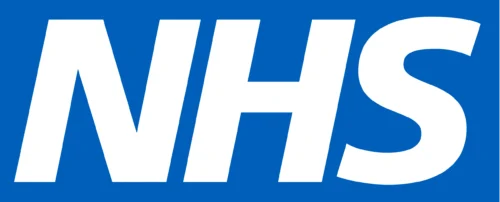The contact persons at Batalas were very helpful in answering our queries and in the pre-course preparation. The trainer was very engaging and the teaching method was very effective.
Jose Magbanua
Sphere Medical
ISO 13485 Lead Auditor
He was a fantastic engaging trainer, interactive and challenging ways of thought and approach in audit situations. He approached everyone fairly and equally and always actively listened and responded to queries.
Adam Gregory
Advanced Medical Solutions
ISO 13485 Lead Auditor
The course was interesting and engaging as a group and the trainer was really informed. The training manual and course handouts were good and gave us more scope to work on our own trail of thoughts without giving too much away.
Gladwell Kozak
Great Western Hospital, NHS Foundation Trust
ISO 13485 Internal Auditor
The trainer made what was a very dry subject engaging, inclusive, and entertaining.
David Crellin
Shandon Diagnostics Ltd.
ISO 13485 Internal Auditor
The course was packed with info and a great balance between learning and doing. The trainer really knows his subject well.
Stephen Reeder
SMi Drug Discovery
ISO 13485 Internal Auditor
We all enjoyed the training provided. The tutor was engaging and interesting. He was also very knowledgeable on our processes so that was very helpful.
Bryony Hartley
Serrations Ltd
ISO 13485 Foundation
Great service from Batalas, very supportive admin support with pre-course. Great course well pace from an expert instructor.
Jamie Cook
Alchemy SCS Ltd
ISO 13485 Lead Auditor
The course was very detailed and covered in great depth by the tutor, he always had the time and knowledge to answer any questions put forward and he kept the whole group engaged throughout the day. Top marks!!
Sam Limmack
Orthoplastics
ISO 13485 Foundation
The tutors enthusiasm to lead a course is second to none. His energy ensured I was engaged throughout.
Drew Evans
Pelican Healthcare
ISO 13485 Foundation
The tutor's knowledge and his expertise together with his experience, make this course very engaging.
Stefan Thomi
Coltene
ISO 13485 Lead Auditor
It is best interactive and immersive course I have ever attended. It was engaging and I have learnt so much.
Kathryn Prattley
Elekta Ltd
ISO 13485 Lead Auditor
The trainer is the main reason behind the success of the course. He is very knowledgeable with the standard and approaches the course discussion with enthusiasm and engagement with the participants.
Rodrigo Petoral Jr
Coloplast
ISO 13485 Lead Auditor
Very engaging and informative. On our course we had 10 people, 5 functions, and everyone came away with a good understanding of the requirements to audit and be audited.
Dean Wybrow
Renishaw
ISO 13485 Internal Auditor
I enjoyed the course more than anticipated. The tutor delivered some good stories which helped to leaven the load a little.
Stephen Evans
ISO 13485 Foundation
Very good communication throughout the process, from booking to the completion of the course.
Caroline Alexander
Genedrive Diagnostic Ltd
ISO 13485 Internal Auditor
The course content and its excellent presentation exceeded my expectations. It has been the most beneficial course that I have attended for many years.
Jon Selby
Renishaw
ISO 13485 Internal Auditor
I felt the breakout rooms where good and gave you an opportunity to work with others.
David Smith
ISO 13485 Foundation
The training was delivered perfectly, to the point were the information was easy to retain.
Fotini Stavrou
Genedrive
ISO 13485 Internal Auditor
What an amazing tutor, patient, understanding and approachable. Able to keep everybody engaged.
Katie Jennings
ISO 13485 Lead Auditor
I felt the breakout rooms where good and gave you an opportunity to work with others.
David Smith
ISO 13485 Foundation
He was an amazing trainer! Very patient, he put himself at the level of the audience (for French people), full of anecdotes and striking examples to illustrate his points and a GREAT actor!
Steven Jakubczyk
Zimmer Biomet
ISO 13485 Lead Auditor
The most useful course components were the interactive audit sessions, especially the time we had to prepare.
Gabriel Lambert
ISO 13485 Internal Auditor
The course delivery was so empowering. I felt it was one of the most worthwhile courses I've attended in recent years.
Owen Lewis
Renishaw
ISO 13485 Internal Auditor
I have undertaken two lead auditor courses with Batalas, one via virtual classroom and the other classroom-based - I found both very enjoyable.
Erling Smith
ISO 13485 Lead Auditor
Role play scenarios were very insightful and were an excellent interactive way to learn.
Hayley Morgan
ISO 13485 Lead Auditor
I felt the online pre-course work was very useful before attending the course. It gave me a basic understanding of the subject (which I had none) and this greatly helped with the discussions on the training.
Robert H
ISO 13485 Foundation
The course was really good. I especially liked all the practical case studies and exercises.
Ana Teresa Marchante
ISO 13485 Lead Auditor 






